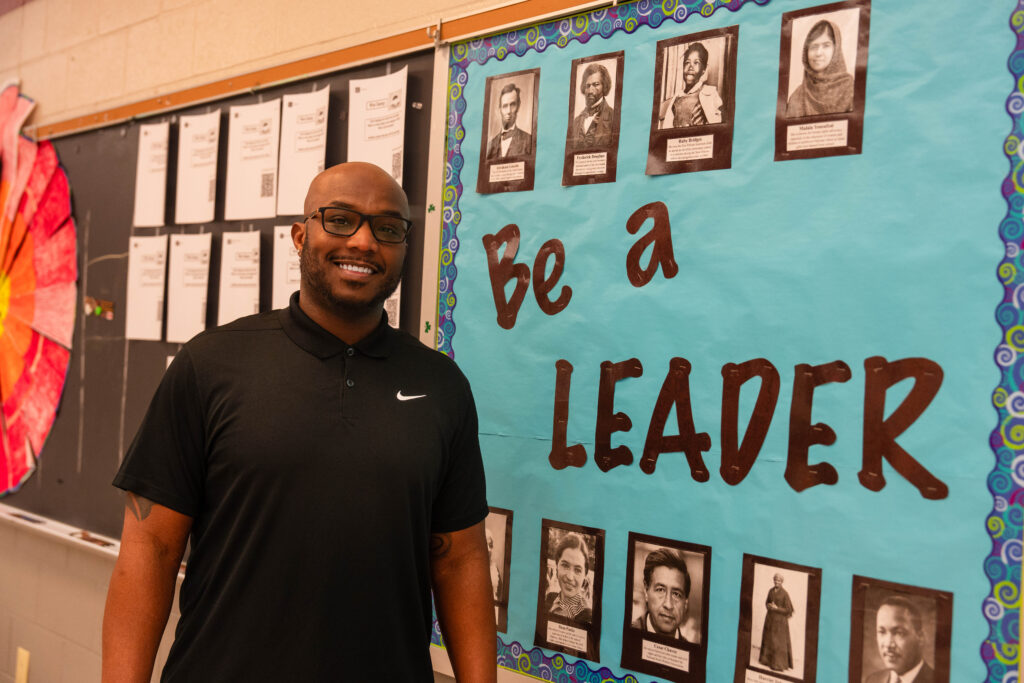
As we celebrate Black History Month in the School District of Lancaster, we take a moment to honor the voices and stories that shape our community. This month is not just about looking back at history, it’s about recognizing the individuals who continue to make an impact today. One such individual is Quintin Owens, a dedicated school counselor at McCaskey High School and an influential football coach, whose journey reflects perseverance, leadership, and the power of representation.
A Journey of Strength and Purpose
Quintin Owens’ path to Lancaster was shaped by both personal hardship and a deep desire to uplift others. Originally from Reading, PA, he attended Millersville University to play football, a sport that became his anchor during challenging times. Growing up in an environment marked by violence and hardship, Owens witnessed the devastating impact of crime, including the loss of friends and even his own brother while he was in college. These experiences fueled his determination to create a positive path for himself and others.
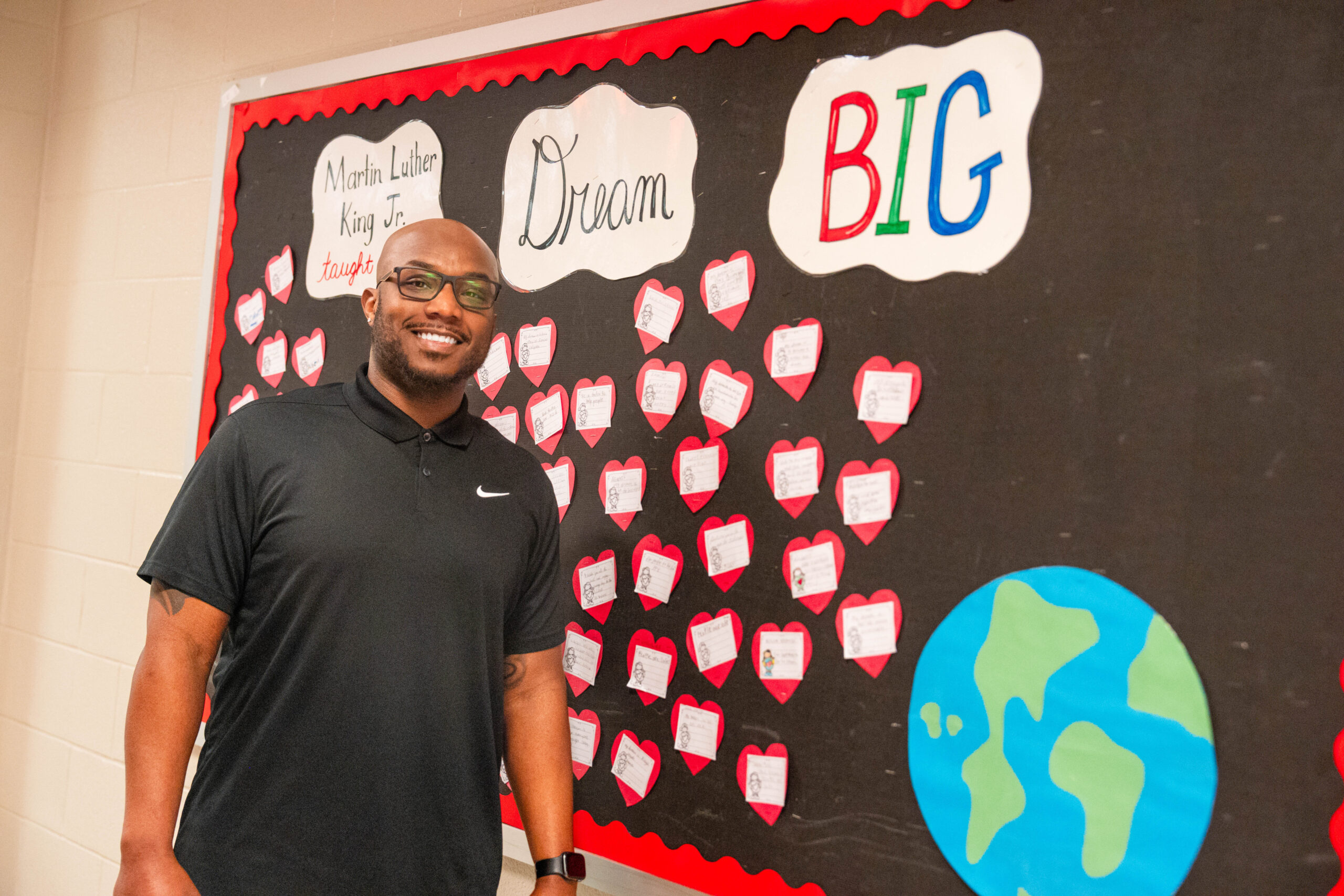
His career in youth services began with roles at the Community Services Group, where he worked with adults with disabilities, and as a juvenile detention supervisor, where he guided young people facing some of life’s toughest challenges. His dedication to supporting youth led him into the education sector, where he worked in various capacities before becoming a school-based therapist at Fulton Elementary. From there, he transitioned into his current role as a school counselor at McCaskey, where he provides both academic guidance and personal mentorship.
In addition to his counseling work, Owens has coached football for over a decade, using sports as a vehicle to teach discipline, teamwork, and perseverance. Coaching allows him to form deeper bonds with students, giving him another avenue to guide young athletes in their personal and academic lives.
A Legacy of Guidance and Representation
As the only Black male school counselor in the School District of Lancaster, Owens understands the responsibility that comes with his position. “It makes me value my role even more,” he says. “Many of our students don’t have Black male educators they can look up to, so I make it a priority to be there—not just for academics, but for their personal growth and their future.”
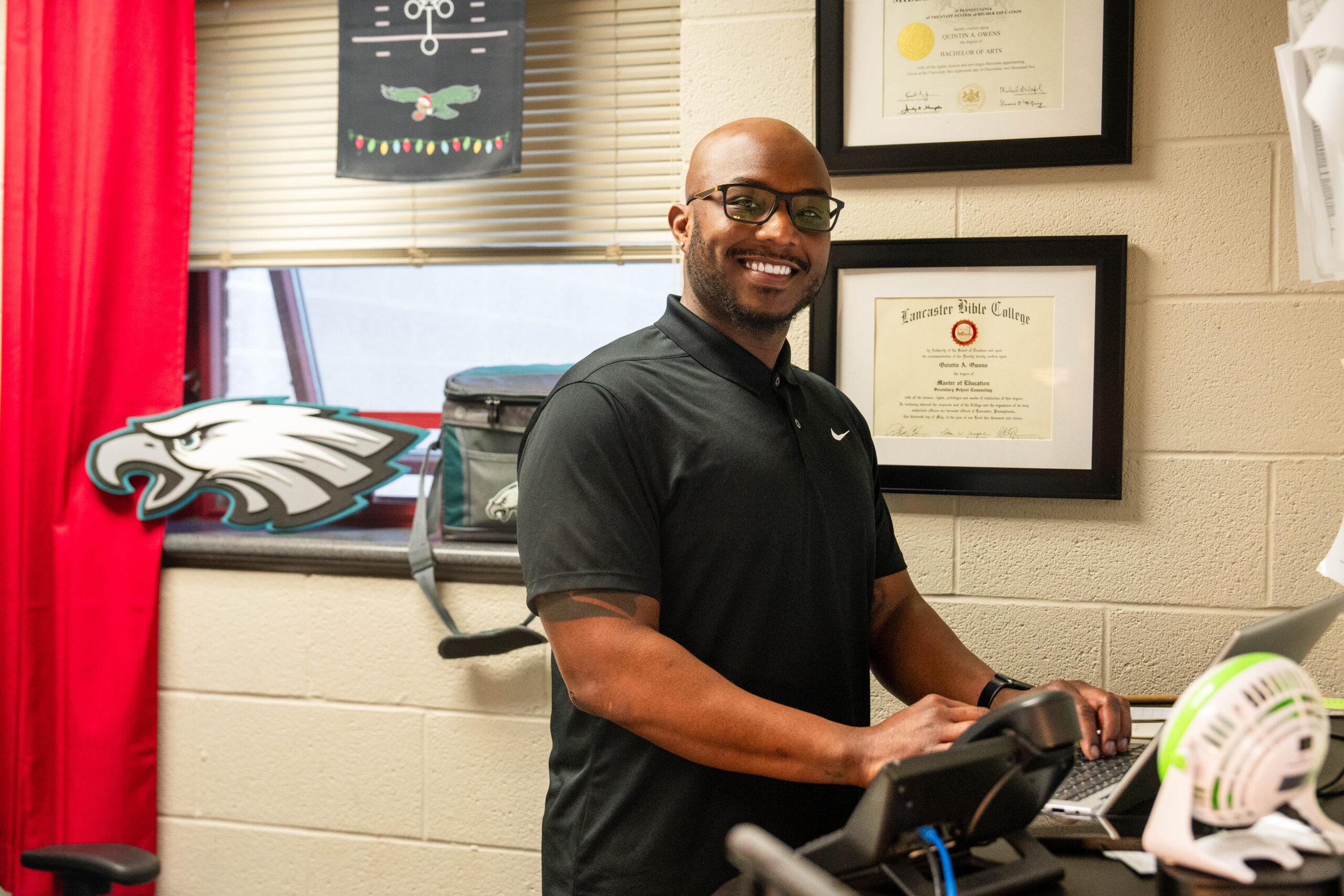
Owens is intentional about building meaningful relationships with students. His own upbringing, marked by the absence of his father and struggles with anger, gives him a unique ability to empathize with students who feel misunderstood. He credits his mother, grandmother, and school counselor for helping him channel his emotions productively, lessons he now passes down to the students he serves.
The Power of Listening and Understanding
Owens believes that real change happens through connection and conversation. He recalls a pivotal moment from his time working with an alternative school program. A white student, deeply rooted in racial bias, refused to engage with him. Instead of reacting with frustration, Owens initiated a dialogue, asking the student to explain his beliefs. The student listed off racial stereotypes, to which Owens responded by breaking down each one, showing the student how little truth they held.
Through patience and open conversation, the student slowly began to challenge his own prejudices. By the end of the school year, he sent Owens a senior picture with a note expressing gratitude for changing his perspective. This experience reinforced Owens’ belief that open dialogue and mentorship have the power to reshape lives.
What Black History Month Means to Him
“For me, Black History Month is about reflection,” Owens shares. “It’s a time to acknowledge the struggles, sacrifices, and triumphs of those who came before us. It reminds me to sit down with my elders, listen to their stories, and learn more about where we come from.”
A particularly impactful discovery was learning that his great-grandmother owned a kitchen in Reading, PA, where his uncles, military men and boxers, trained with none other than Muhammad Ali. “I always saw the pictures in my grandmother’s basement but never asked the questions. Now, I make it a point to listen.”
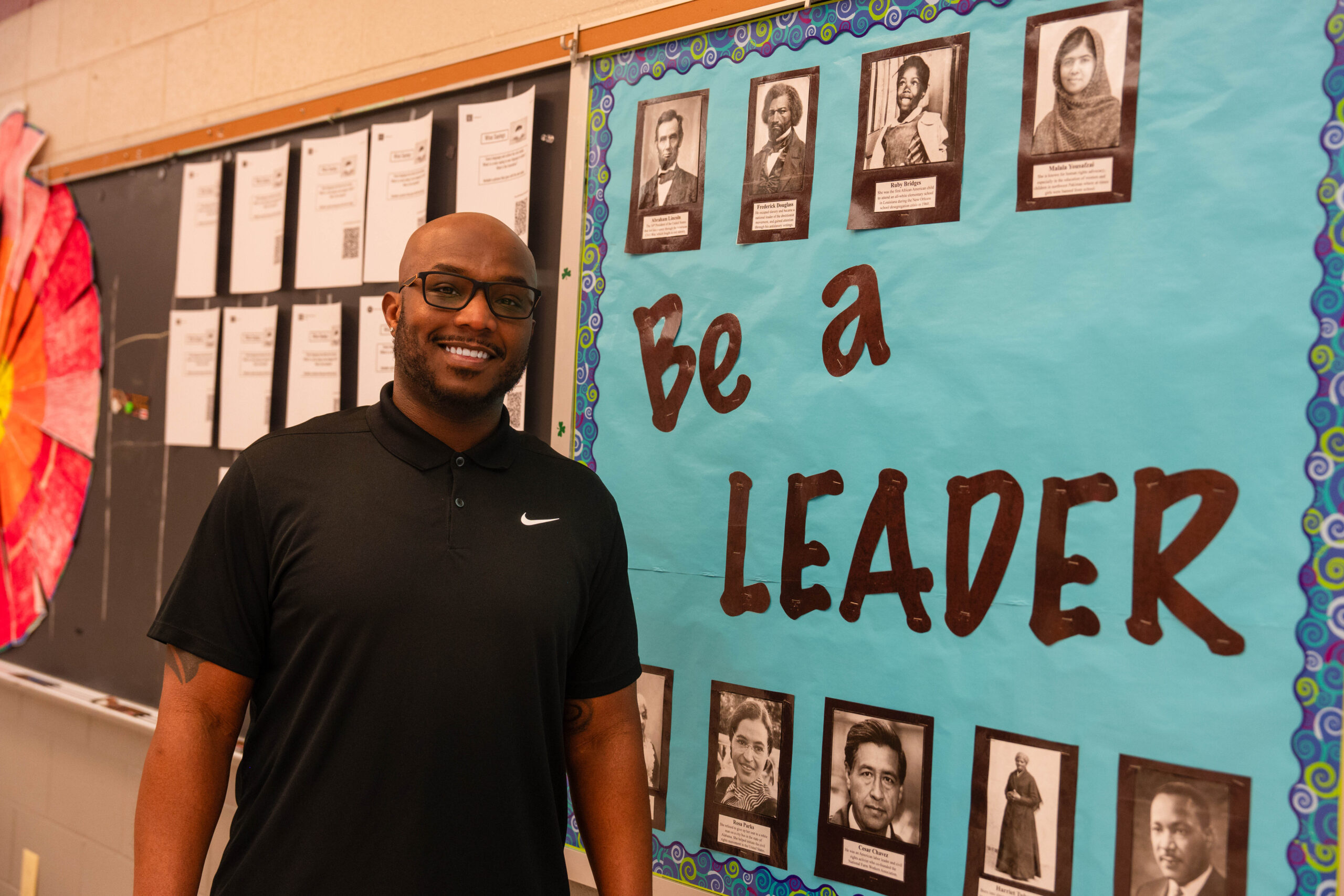
In his own way, Owens ensures that history continues to live through the students he serves. He fosters discussions about identity, perseverance, and empowerment, not only during Black History Month but all year long. He encourages students to take pride in their heritage, ask questions about their roots, and reflect on the broader significance of their experiences.
A Lasting Impact
When asked about the legacy he hopes to leave, Owens reflects on the relationships he has built. “It’s not about the accolades. It’s about the connections. The students who come back years later to tell me how they’re doing, the ones who let me know that something I said or did made a difference. That’s what matters.”
Owens often hears from former students who have gone on to college, started careers, and built families of their own. Some return just to say thank you, while others reach out for guidance even after graduation. Knowing that he has helped shape their futures keeps him motivated.
The Intersection of Counseling and Coaching
Owens finds that his roles as a counselor and a football coach are deeply intertwined. “Football was a huge part of my own personal growth, and now I use it to reach students who might not otherwise open up,” he explains. Some students who struggle academically or behaviorally find purpose and motivation through sports, and Owens helps them connect their athletic goals to their long-term aspirations.
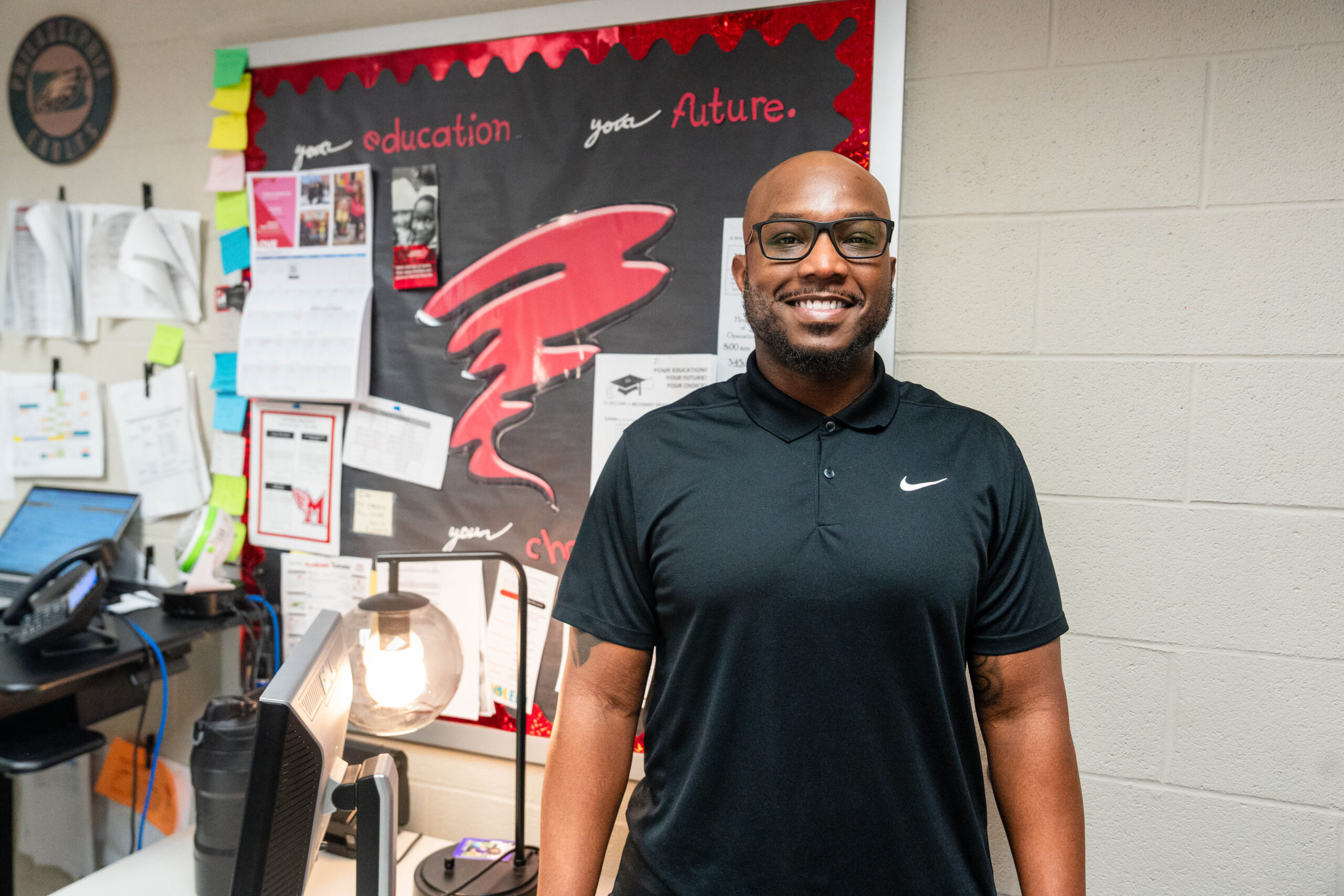
One of his proudest moments was coaching a female football player, Genesis Castro, who later became a record-breaking track and field athlete. “She was one of my toughest players,” Owens recalls. “She’s getting a full-ride scholarship and has the choice to go for academics or athletics. Seeing her growth has been incredible.”
A Call to Action for the Community
Owens emphasizes the importance of mentorship, particularly for young people of color. He encourages community members to support youth, reminding them that representation matters in every field. “Young people need to see Black men in positions of leadership, in education, in fields that aren’t always celebrated,” he says. “They need to know there’s a place for them in these spaces.”
For Black History Month, he calls on educators, parents, and mentors to have intentional conversations with students about their identities, struggles, and aspirations. “Sometimes, just listening makes all the difference,” he says.
This Black History Month, we celebrate not just the icons of the past, but the changemakers of today—like Quintin Owens, who continues to shape the future, one student at a time.
